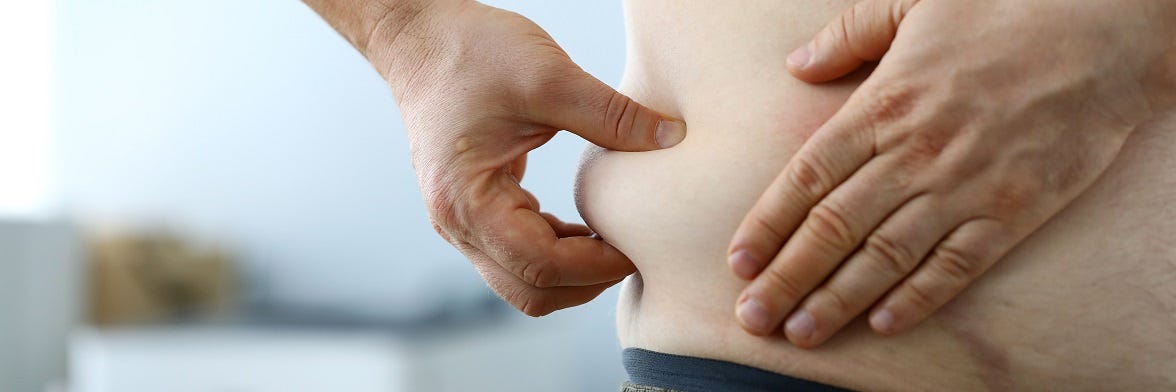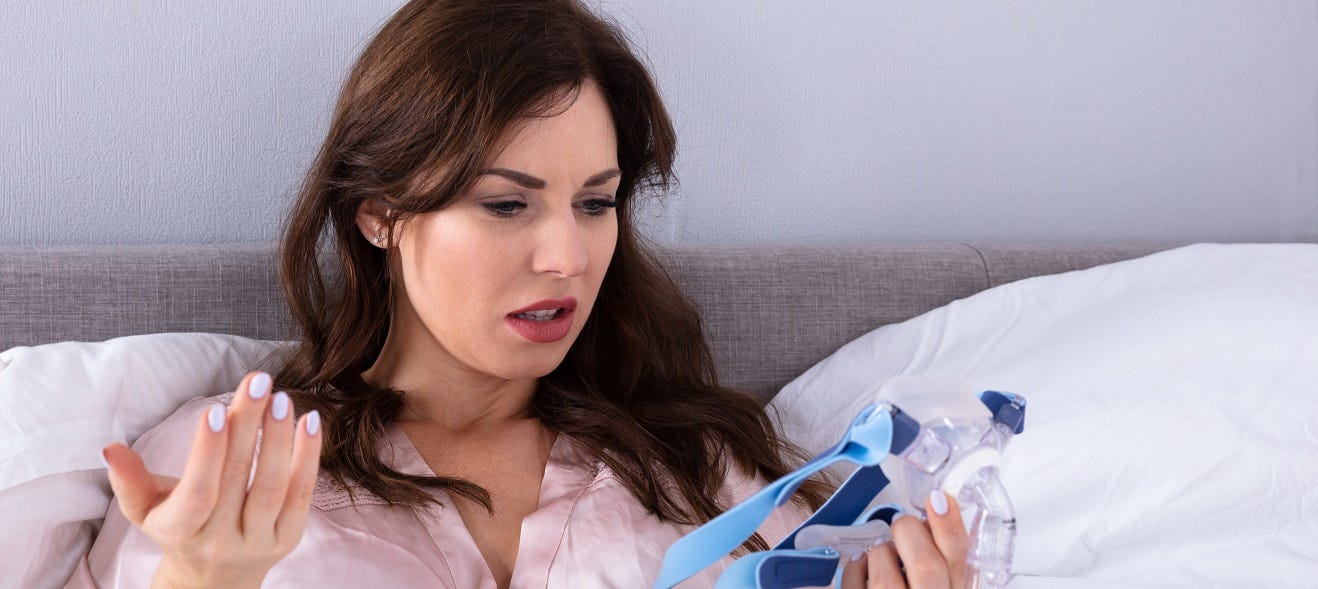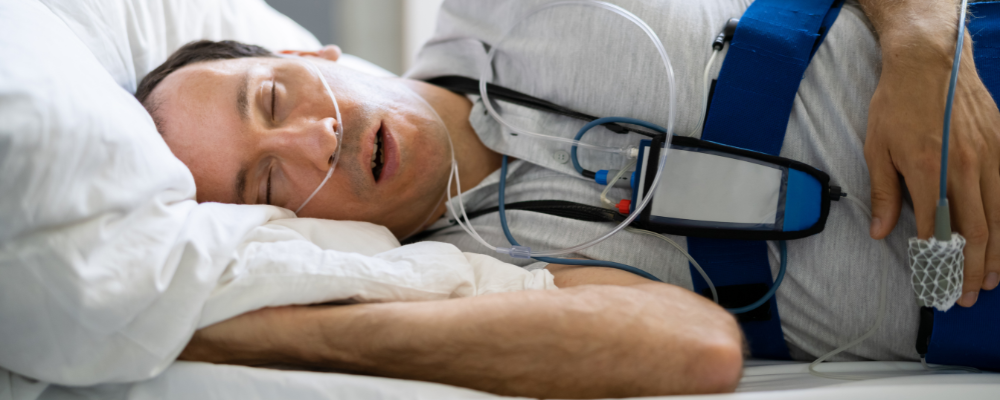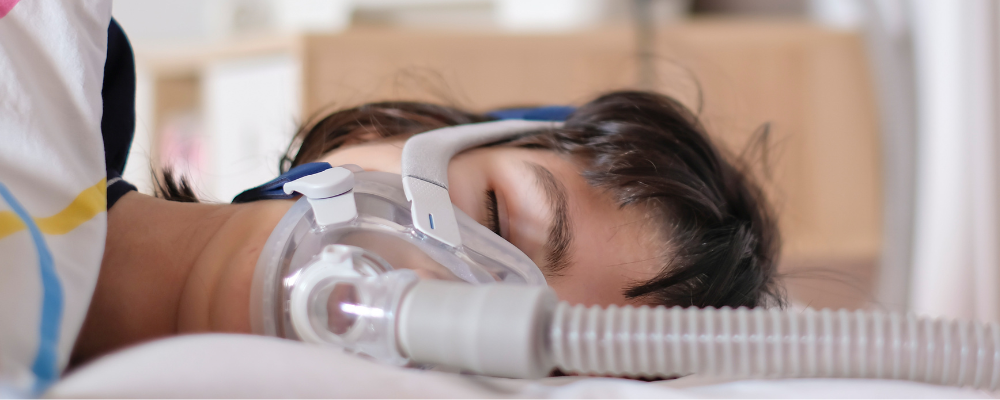We’ve said it before, and we’ll say it again; obesity is a common comorbidity behind obstructive sleep apnea (OSA.) So, there’s no question that the link between obesity and OSA is real, but can OSA cause weight gain? What about the reverse? We’ll answer these questions and more as we explore the ins and outs of sleep apnea and weight gain.
Can Sleep Apnea Cause Weight Gain?
Although sleep disorders (like OSA) don't directly cause weight gain, some sleep apnea symptoms and comorbidities may...
Chronic Fatigue
Chronic fatigue or daytime sleepiness leaves you tired and less motivated to exercise. It may even reduce your metabolism. This puts you at a higher risk for metabolic syndrome, and then, as Mayo Clinic points out, metabolic syndrome may lead to “heart disease, stroke, and type 2 diabetes.” The negative health conditions just keep getting worse and worse as you gain more weight.
The best thing to do when dealing with sleep apnea and chronic fatigue is to follow CPAP compliance guidelines. Aeroflow Sleep pairs every member of our program with a dedicated Sleep Specialist to help keep you on track, and if you continue to comply even after your initial 90 days of CPAP therapy, you will feel more rested. Next thing you know, your overall health and quality of life will improve too.
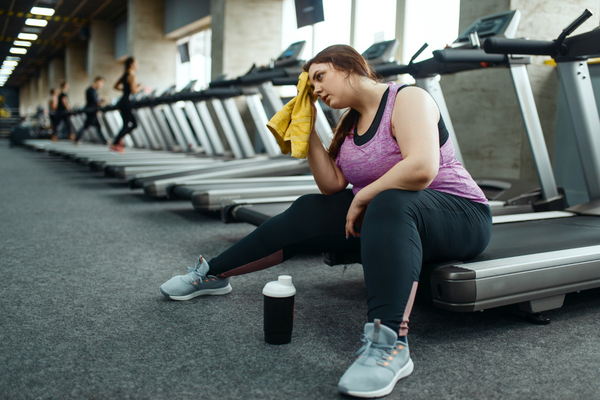

Hunger and Hormones
According to WebMD, poor sleep quality also increases overeating. This is due to changing ghrelin and leptin levels, which are hormones that tell you when you’re feeling hungry and full. If you are suffering from sleep deprivation, your body may try to combat these lower energy levels by producing more ghrelin, telling you to eat more and therefore gain more energy. Such overcompensation means that your normal leptin levels may not be enough to beat out these feelings of hunger, so you won’t feel full as quickly as you should. In fact, OSA lowers your leptin levels too! Talk about a vicious cycle!
Following CPAP compliance guidelines will restore both your energy and hormone levels, and if you aren’t seeing the results you expected, Aeroflow Sleep promises to replace your CPAP mask within its first 90 days of use. 60% of CPAP users stop their CPAP therapy, because the first CPAP mask they order doesn’t fit or leaks. We want you to be comfortable with yours and a perfect fit will further assist you on your quest for a good night’s sleep.
Carb and Sugar Cravings


Unhealthy food choices are another cause for concern. The Harvard School of Public Health corroborates, “[Those] deprived of sleep had higher levels of the appetite-stimulating hormone ghrelin and lower levels of the satiety-inducing hormone leptin, with a corresponding increase in hunger and appetite–especially for foods rich in fat and carbohydrates.”
Too much fatty foods, sugar, and carbs is a one-way ticket to weight gain. Plus, a severe case of excess weight may result in high blood pressure, breathing disorders, and hypertension; all of which will worsen your sleep apnea, but can the weight gain cause sleep apnea too?
Can Weight Gain Cause Sleep Apnea?
Sleep apnea may not directly cause weight gain, but the opposite is more likely. Weight gain is a risk factor in developing sleep apnea when there’s extra pharyngeal fat present. Pharyngeal fat is the soft tissue around your pharynx or the back of your throat. Extra fat in this area, the neck, and chest will displace as you lie down to sleep, and the added weight will distress your upper airway, causing it to narrow. This puts you at increased risk for OSA, as the pressure creates an obstruction.
Next, it’s time to exercise. 30 minutes of moderate physical activity daily is a great starting point. Obese patients looking to lose weight may want to consider increasing that amount of time from 30 minutes to an hour. Feeling like you’re in a fog will make it difficult in the beginning, but if you purposefully plan to exercise when you’re the most awake, you will notice it getting easier. It can be after your first cup of coffee or late in the afternoon; whatever works best for you!
Finally, talk to your doctor about your body weight. They may recommend a nutritionist, personal trainer, or physical therapist to assist you. After all, there’s no one way to lose weight. Just remember that if you’re a sleep apnea patient, you do want to make CPAP therapy a part of your weight loss journey.
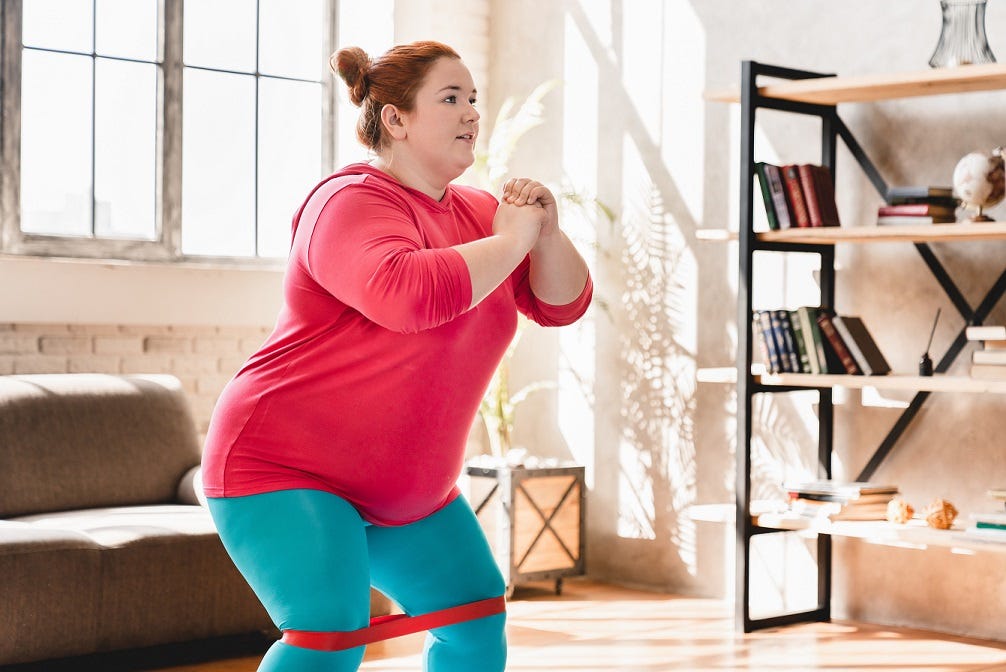

Can Weight Loss Cure Sleep Apnea?
Losing weight is a great way to tackle chronic fatigue, hormone imbalance, and cravings, but weight loss will not cure sleep apnea. “Sleep apnea is treatable but not curable,” says Michelle Worley, Director of Clinical at Aeroflow Sleep and a Registered Nurse. “Lifestyle management like diet and exercise can help if you are overweight,” so let’s shed some light on how sleep apnea patients can make these adjustments.
First, calculate your body mass index (BMI) to determine how much weight you need to lose. It’s important to start here rather than just checking your body weight on a scale, because fat deposits are stored within the abdomen or thorax and may not be as visible as you’re led to believe. The CDC defines an adult’s overweight range as a BMI between 25 and 29.9 while obesity is anything above 30. Anything between 18.5 and 25 is what you should strive to achieve.
Can CPAP Help You Lose Weight?
CPAP therapy will certainly improve your chances of returning to a healthy weight, because sleep is an important part of your health. Treating your OSA, eating right, hydrating, exercising, and practicing mindfulness is by and large a recipe for success. And just like you need fruits and veggies to eat a better meal or some sneakers for that morning run, you need the right CPAP supplies to treat your OSA. You need Aeroflow Sleep.
We have the latest CPAP machines, masks, and accessories in stock and will cover every part up to 100% through insurance. Of course, we understand that overcoming obesity is already a difficult enough task without having to worry about navigating your insurance too. That’s why Aeroflow Sleep works with both your provider and your doctor on your behalf. We’ll submit all necessary paperwork, including your prescriptions, and we’ll keep you informed as your order ships. We want to make this process as easy as possible for you; all you have to do is sign up!


